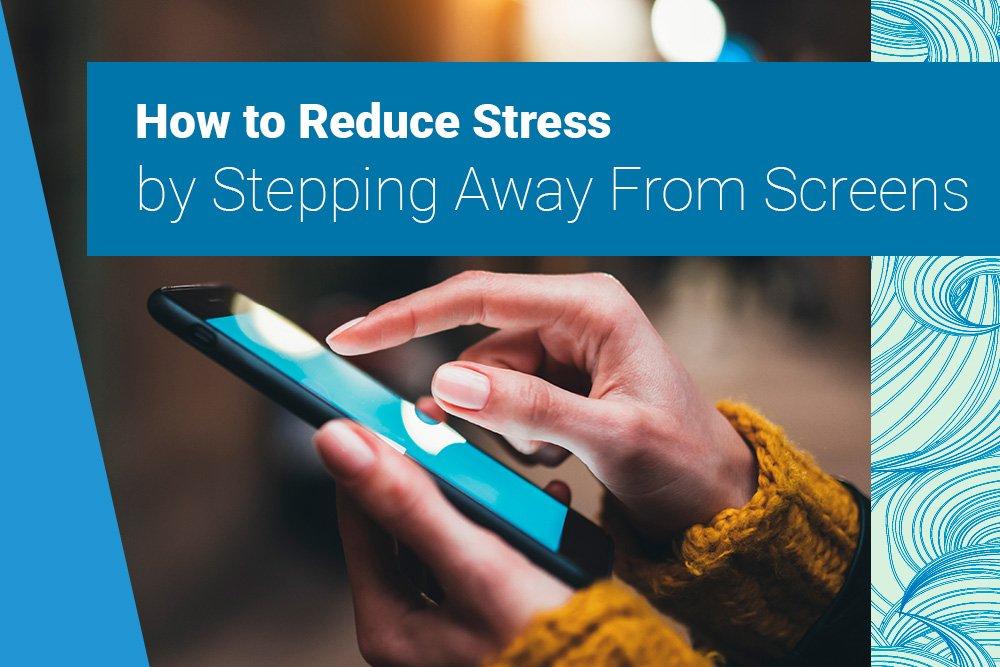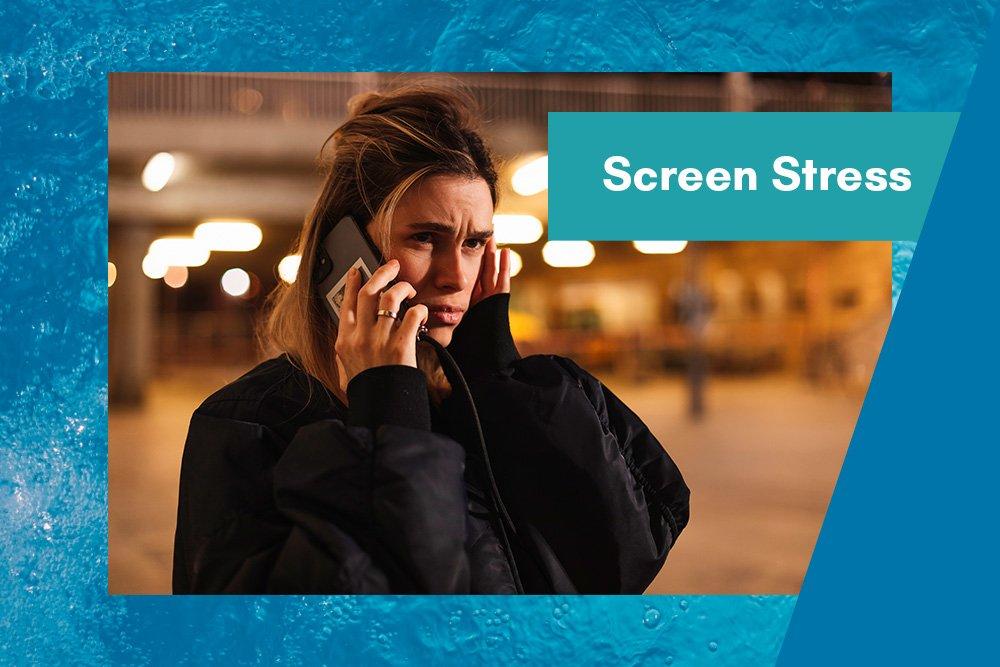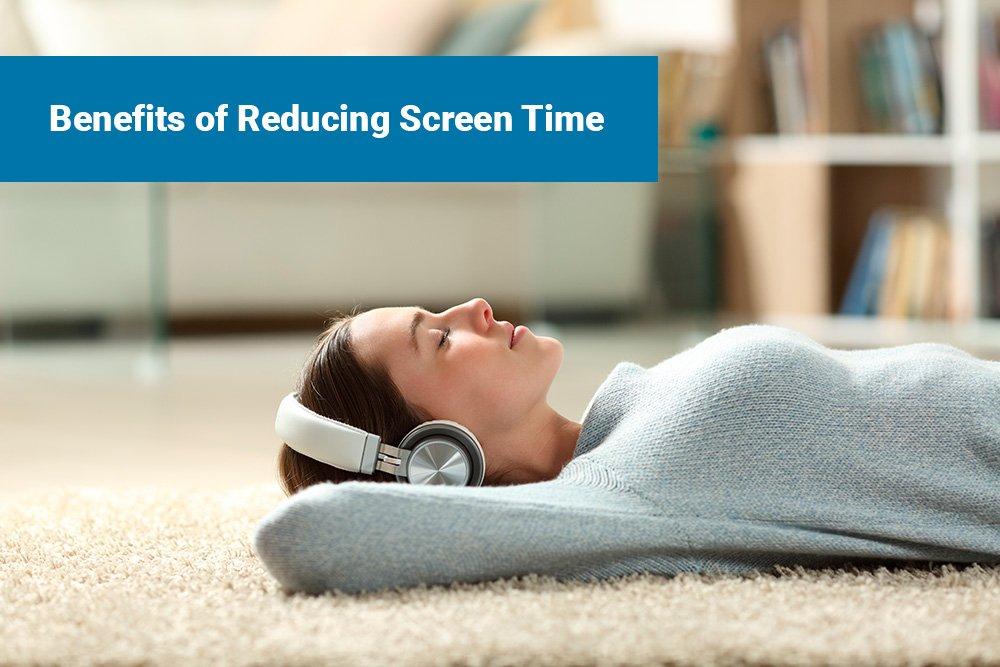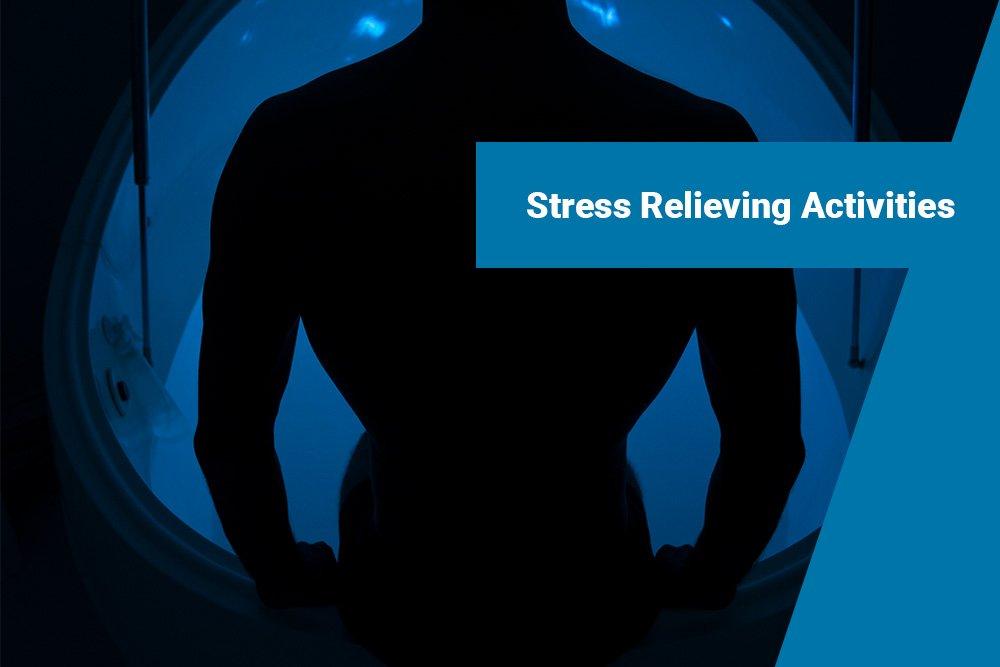
With the ease and availability of text messaging, emailing, streaming videos, and social media interaction, it is easy to see how people can become addicted to electronic devices. However, while laptops, tablets, and smartphones have been some of the most incredible technological advancements in human history, clinical studies have shown that too much screen time can cause various medical issues, from simple eye strain to severe emotional problems.
While being constantly connected can be a valuable resource, especially for those who rely on it for work or school, too much screen time can cause information overload and disconnect people from their family, friends, and coworkers. One of the biggest concerns is the phenomenon of “screen stress,” affecting over 100 million Americans and 40 percent of the populations of developed countries around the world. A study by the American Psychological Association found that almost ninety percent of Americans use their devices on an average day, and nearly 20 percent of those identify using technology as a cause of stress. The study also found that over 40 percent of Americans are concerned about the negative impacts of their devices.
Screen Stress

The average adult spends up to 12 hours a day in front of some type of electronic device, working, watching videos, shopping, or paying bills. Screen stress is the psychological and physical impact from the overuse of technology that disrupts normal regulatory functions of the brain. The constant stimuli from device screens result in repeated stress on the CNS, or central nervous system, causing people to feel agitated, isolated, impulsive, and even angry and aggressive. Following is a short list of some of the negative effects of too much screen time:
• Promotes a sedentary lifestyle that invites physical health issues, like obesity.
• Disrupts sleep cycles, so you are less rested.
• A range of vision issues such as eyestrain headaches, dry eyes, and blurred vision.
• Affects the parts of the brain responsible for empathy, making it harder to build and maintain relationships.
Reducing Screen Stress
There are several effective ways to relieve stress, and one of the best ways of dealing with screen stress is to unplug. However, this may not be an option for those whose livelihoods require spending a lot of time online. For those who simply can’t just turn off their devices, taking regular breaks can significantly reduce screen stress.
Countless scientific studies have shown people are the happiest when they engage in a balance of right- and left-brain activities, and watching a screen is primarily a left-brain exercise. To counteract screen stress, take regular breaks and engage in right-brain activities like exercising, listening to music, and cooking to help restore proper CNS functioning. Here are three essential tips to help manage screen time:
• Establish a “no device” policy for the dinner table or when spending in-person time with family and friends.
• Set social media app notifications to “off.”
• Set a total daily time limit on the use of electronic devices.
Benefits of Reducing Screen Time

Being constantly bombarded with emails, news alerts, and mindlessly scrolling through video titles causes your brain to be in a perpetual state of overdrive. Unplugging from technology reduces stress and anxiety by allowing your brain to slow down and reboot itself. Taking regular screen breaks can help reduce or even eliminate harmful side effects and improve your emotional well-being. The biggest benefit of reduced screen time is it allows more time to do other things. Reducing your screen time by just 30 minutes a day will give you time to get an adequate amount of health-promoting exercise that can be as simple as taking a stroll or bike ride around the neighborhood.
Putting your devices down will give you more time to spend with family and friends in person. While technology has made it easier to stay current on what out-of-town family members and friends are doing and establish “virtual” relationships with new people, the lack of physical human contact can leave you feeling detached. This is a sure-fire recipe for loneliness which often leads to anxiety and depression. Additionally, spending too much time on social media can lead to feelings of envy, jealousy, and even resentment, and this is especially true if you have had some personal setbacks. Seeing your old classmates doing exceptionally well in their professional or personal life can lead you to start making unintentional and unhealthy comparisons. Unplugging will give you the time, and perspective, to realize you have a lot to be grateful for.
Stress Relieving Activities

Aside from exercising, getting outdoors, and spending time with family and friends, there are several non-invasive therapy options to help release stress.
• Float Therapy
Often referred to as sensory deprivation therapy, float therapy is one of the most effective ways to relieve stress as it shuts out all external stimuli, so all five senses get a break. Float tanks are filled with a high-salinity solution of water and magnesium sulfate, referred to as Epsom salts, that allows the body to float effortlessly. This provides a sense of weightlessness to reduce gravitational pressure, reduce blood pressure and heart rate, and increase endorphin production. The physical benefits of floating and sensory deprivation have been demonstrated in research studies and clinical trials. One recent study by the Laureate Institute for Brain Research in Tulsa, Oklahoma, found floating helps with anxiety and stress-related disorders by recalibrating the brain’s circadian rhythms and reducing levels of the stress hormone cortisol.
• Infrared Sauna
Unlike a traditional sauna that externally heats the body, an infrared sauna warms the body at the cellular level. This results in improved circulation, which increase the production of endorphins, the body’s natural pain killers, stimulates the immune system to increase the production of white blood cells, and improves sleep. All of this helps heal the body and mind in the most natural way possible.
• Sound Healing
Hospital and university research has shown listening to relaxing music provides stress-reduction benefits. Sound healing goes a step further by delivering sound vibrations directly to the body’s cells and penetrating everything from the muscles to the brain. This provokes a relaxation response and resets your body back into its natural harmonized state to create a sense of peace that leaves you feeling invigorated.
• Massage Therapy
Massages are customized to your needs to relieve tension, relax your body, and quiet your mind. Massages can be performed by hand or in specially designed chairs, which are a highly effective alternative to traditional massage therapy.
If you have slipped into a pattern of spending too much time in front of a screen, try engaging more in real life with family and friends, and you will almost certainly notice a marked improvement in your feelings and attitudes. If you think you would benefit from the stress-reduction methods mentioned above, Be Still Float offers stress therapy in Jacksonville and sound healing in Jacksonville with a full stress relief package that includes all of the therapeutic treatments mentioned here. Visit them online at BeStillFloat.com or call them at 904-593-2849. If you are outside the Jacksonville, Florida area, you can locate a provider by performing a search for “stress therapy near me” or “infrared sauna near me.” Sign up for a free, simple 15 minute phone wellness consultation to discuss which services may best meet your goals.













